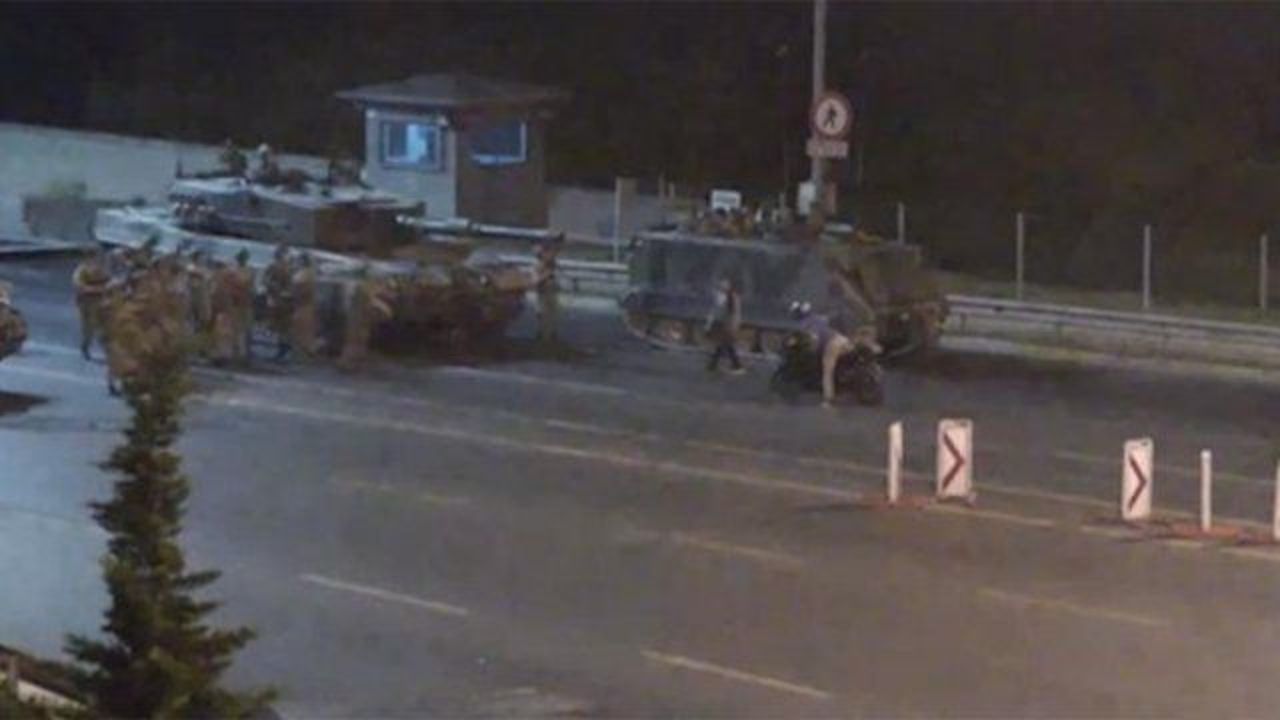'Deceived' soldiers recall failed coup night
Turkish soldiers and military students who were deployed on Istanbul’s July 15 Martyrs' Bridge during last month's failed coup night said that they were "misled and deceived" by Fetullah Terrorist Organization (FETO) commanders.

During interrogations, some of the soldiers argued that, initially, they had no idea that they were taking part in an attempt to overthrow the elected government, thinking that it was just a military exercise or bomb attack threat.
In his testimony to an Istanbul prosecutor, H.Y., a private at Istanbul's Kuleli Military High School, said all soldiers were ordered to gather in the assembly area after dinner on the putsch night and each was given four cartridges with 80 bullets.
He said he was not one of the pro-coup soldiers, he was just ordered to deploy on the bridge for a "military drill":
"When we arrived at the bridge with tanks, there was no military vehicle. I think we were the first troops having reached the bridge that night. Then the tank stopped in the middle of the road and closed the bridge to the traffic."
"During the time on the bridge, we could not find out what was going on. Then, we were told to say to the people that the army declared a state of siege. When we did it people swore at us but a commander fired his gun up in the air to scare the people," H.Y. said.
H.Y. said as the number of civilians increased on the bridge a major, named Ahmet, gave the order to open fire on the civilians. "Soldiers did not want to carry out the order first, but once he threatened: 'Fire on the civilians or I will shoot you', soldiers started to fire on the people," H.Y. said.
H.Y. also gave some information on Kurtulus Kaya, a soldier who was allegedly lynched.
"We took shelter in front of the tank. When the tank fired, we were shocked. We hid behind the tank, and we saw our friend, Kurtulus, shot in his eye and lying dead; we started to cry," H.Y. said.
Similarly, private F.T. at Kuleli Military High School, said in his testimony that they were firstly told they were taking part in a military drill.
F.T. said, however, they were later told by a senior officer that there was a bombing threat for the bridge.
"During the time on the bridge, we were confused. A high-ranking soldier ordered us to fire to anyone who resist [to coup soldiers], F.T. said.
Stating that one of the majors opened fire on civilians on the bridge, F.T. said: "He also told us that the civilians could be attackers. And he ordered us to fire on people."
On coup night, tanks were on the streets of Istanbul, including the bridge, to block the crossings from the city's Asian to European sides, announcing that the army had seized control of the country.
In the aftermath the thwarted coup, thousands of army officers have been detained for suspected links to FETO as part of a nationwide investigation.
The coup probe has seen also hundreds of officers sacked from the military.
Turkey declared a state of emergency on July 20 after a group of rogue military officers were defeated in their July 15 coup attempt.
During a state of emergency, the Cabinet has the right to issue statutory decrees under the president of the republic without regard to routine procedures and restrictions in Article 91 of the Constitution. These decrees are first published in the Official Gazette and then submitted to parliament for ratification.
Under the statutory decree, the country announced wide-ranging changes in its armed forces. As part of changes, all military schools would be closed and war colleges replaced with a National Defense University.
The university will offer new institutions to train staff officers and give postgraduate education, including war academies and vocational schools that train non-commissioned officers.
At least 239 people were martyred and nearly 2,200 injured in the coup attempt, which Turkish officials have repeatedly said was carried out by FETO, led by U.S.-based preacher Fetullah Gulen.
Anadolu Agency







